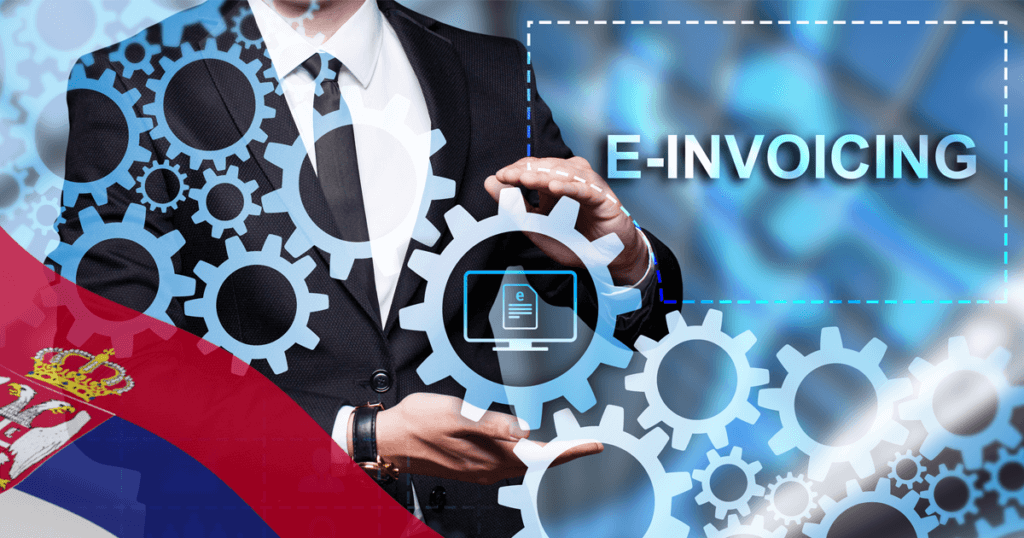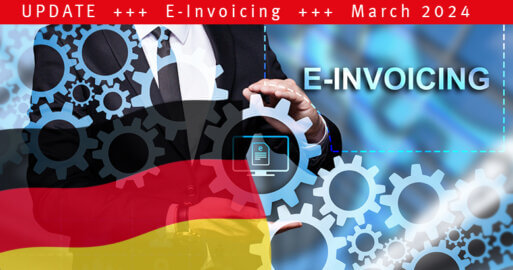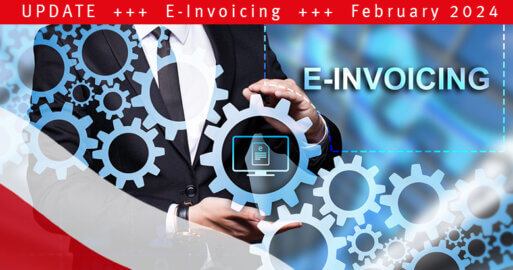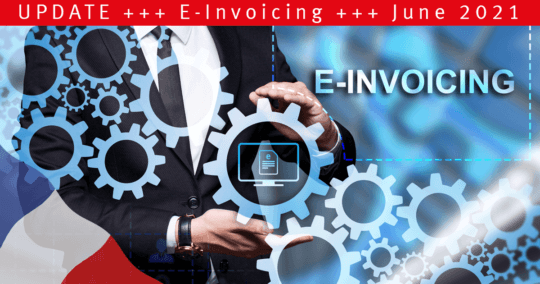Compulsory e-Invoicing for B2G and B2B Transactions in Serbia from 2022

From 1st January 2022, it will become compulsory for businesses to send e-invoices over a central e-invoicing system when supplying Serbian government agencies (B2G).
From 1st July 2022, Serbian government agencies will be obligated to send e-invoices to businesses, who must be able to receive and process these.
From 1st January 2023, all billing between businesses and government agencies in Serbia must be e-invoices exchanged on the national e-invoicing platform. This system is similar to those already in use in other European countries, for example the SdI in Italy.
For an update on this topic, see our blog “How the Serbian E-invoicing System is Changing From May 2022“.
Compulsory e-Invoicing to be introduced in Serbia in three phases from 1st January 2022
Following EU Directive 2014/55, Serbia will be starting the first phase of introducing compulsory B2G e-invoicing on 1st January 2022. A law, SI.glasnik RS, br.44/2021 on the e-invoicing system .
On the one hand, Serbia can look forward to a quicker turnaround in settling invoices. There will be no more issuing, receiving and storing of paper-based invoices, which will not only make day-to-day administration easier, but will also increase transparency for transactions made. Equally, this mandate serves to ensure that VAT is being paid, thus combatting the underground economy. This will make a significant contribution to closing the VAT gap and making it harder to evade tax, this increasing the tax yield.
This law directly affects
- Companies in the private sector which are liable for VAT,
- Public sector organisations
- VAT representatives for foreign companies
Any business not obligated to issue e-invoices may still do so on a voluntary basis, on the condition that the company either pays income tax on self-employed work or is liable for corporation tax.
E-invoices must be sent and received in accordance with the Serbian e-invoicing standard (as defined by the National Standardization Body of the Republic of Serbia). However, this standard is not yet publicly available.
Invoice data may be transmitted through a service provider, or, if the technology is available, directly to the platform.
The deadlines:

- From 1st January 2022, companies in the private sector are obligated to issue e-invoices to public authorities (B2G), while the public authorities are obligated to receive and archive these. They are also obligated to send e-invoices for any business conducted with other public authorities (G2G).
- From 1st July 2022, public authorities are obligated to send e-invoices to companies from the private sector (G2B). From the same date, private sector companies are obligated to be able to receive e-invoices from both sectors.
- From 1st January 2023, the stipulations on sending and archiving e-invoices will fully apply to all transactions between companies in the private sector (B2B).
What obligations does the recipient have?
Once the e-invoice has been successfully sent, the recipient has 15 days to accept or decline it. Should the recipient not react, the sender is informed and the deadline is extended by 5 days. If the recipient still doesn’t react, the invoice is marked as declined. Accepted invoices are archived in government agencies in perpetuity. For companies in the private sector, an invoice needs to be archived for ten years. The ten years begins at the end of the calendar year in which the invoice was issued.
What penalties will there be for not complying?
Penalties are planned for not complying in the following ways:
- Invoices are not being digitally issued
- Invoices are not being digitally received
- Payment is not being based on the e-invoice
The above violations carry penalties in the range of 200,000 dinar (around 1,700 EUR) to 2,000,000 dinar (around 17,000 EUR) for private persons, legal entities or public companies. There is also a fine for the person deemed responsible for the violation in the range of 50,000 dinar (around 420 EUR) to 150,000 dinar (around 1,270 EUR). The penalty terms can be found in articles 18-21 of the Serbian law SI.glasnik RS, br.44/2021.
Conclusion
Serbia is a pioneer among the EU Member States in implementing a legal B2B e-invoicing mandate to promptly monitor and check VAT payments. Alongside France and Poland, Serbia is following the trend towards compulsory B2B e-invoicing in Europe, initiated by Italy. It is expected that other European countries will follow suit, just like how e-invoicing started in Latin America around a decade ago and has since spread.
The challenge is to implement and follow the various European e-invoicing mandates
- without needing to engage a local agent or provider for every country, and to coordinate these
- while ensuring you fulfil all the various stipulations on data format and communication channel for e-invoices in your accounts payable and accounts receivable
- and while also maintaining simple yet reliable connections to the pertinent ERP systems.
The SEEBURGER BIS E-Invoicing Solution gives you control over your incoming and outgoing invoices and their further processing. It also offers extensions to be deeply integrated into the ERP system of your choice. We are an experienced cloud partner who understands the intricacies of billing in various EU countries and beyond, and offers a one-stop solution to facilitate your global e-invoicing.
Read our update “How the Serbian E-invoicing System is Changing From May 2022”
Webcast on-demand
Learn more about e-invoicing requirements and watch our webcast on-demand!
Thank you for your message
We appreciate your interest in SEEBURGER
Get in contact with us:
Please enter details about your project in the message section so we can direct your inquiry to the right consultant.
Written by: Andreas Killinger
Andreas Killinger joined SEEBURGER in 2014 and is a product manager, responsible for EDI services and software applications. He specialises in SAP solutions, as well as electronic invoicing (e-invoicing) for globally active customers. Following an apprenticeship as an industrial mechanic and a degree in law and administration, he had various roles in the public sector. He then worked for IBM as an SAP Senior Consultant and SAP Project Manager in international SAP projects from 1999 to 2013.





